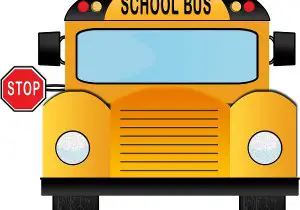When you think of popular board games in the 50s, what comes to mind? Chances are, you have visions of classics like Monopoly and Scrabble and others of that ilk. Well, your perception is not wrong — the 1950s were a cradle of table-top classics, but the list below isn’t all about household names. How many of these popular 1950s board games have you played?
Candyland- Milton Bradley Company (1956)
In Candyland, players race along the brightly colored map, seeking to reach Lollipop Land and avoid King Kandy. Bright colors help keep kids’ attention while they learn how a game is played. Hasbro makes Candyland these, both the original and multiple themed versions.
Monopoly- Parker Brothers (1933)
In Monopoly players roll two dice and move across a map, buying properties or drawing cards until someone has bankrupted all opponents. Hasbro makes various editions with different themes like The Simpsons Monopoly Game, Disney’s Frozen Monopoly Junior Edition Board Game, and many more!
Sorry!- Parker Brothers (1945)
The game is simple: on a turn, the player rolls two dice and moves around the board. If an opponent’s piece occupies your square, you can “send them back to start,” or force them to stay at their current location for another round by rolling doubles again on that turn. The goal of Sorry! is to become the first player to get all of their pieces off of the board.
The Game of Life- Milton Bradley Co. (1860)
The Game of Life is a board game in which the players begin with $20,000 and have to make choices about education, starting families, saving for retirement or taking risks. Hasbro bought out the company that makes The Game of Life in 1991 but still produces it today as both “The Game of Life” and “Life.”
The Outburst Game- Milton Bradley Co. (1954)
Outburst was a board game where players are dealt five cards with the goal to get rid of all their cards by making words that match either one printed on an adjacent card or a category given for example, people’s names. It is still being made today.
Scrabble- Selchow and Righter (1938)
The game of Scrabble is a word board game where players have to place tiles on the grid in order to form words which score points for their team or individual total. It remains popular amongst families, schools, tournaments. Hasbro bought the game in 1991 and continues to produce it.
Clue- Waddington Games (1949)
Clue is a board game that has different characters, weapons and locations. The players have to figure out which character committed the murder based on their clues given by other players. It was first published in 1943 then updated with more modern art-work for reissues from 1948 – present day.
Go to the Head of the Class – Milton Bradley (1940)
This game includes a board and cards that can be used to make the players answer questions. As the name implies, the object of the game is to move your pieces to the “head of the class” by answering more questions than your “classmates” (fellow game players).
Uncle Wiggly Game – Milton Bradley (1941)
This game is loosely based on the Uncle Wiggly books. The object of this board-game is to find your way back home by following a series of clues, solving puzzles and interacting with other players along the way. You need to get all three colors stars before you can go home – otherwise it’s “Off to the wug-wug shop!”
Game of the States – Milton Bradley (1948)
Players can travel to various states and collect points. The winner is whoever has the most cash, animals, or property in their state at the end of play time.
(Like Popular Board Games in the 50s? Then you might like our article on Popular Board Games in the 60s, click here. Or how on Popular Board Games in the 70s, click here. Or leap forward to Popular Board Games in the 90s, click here.)
(affiliate links)







